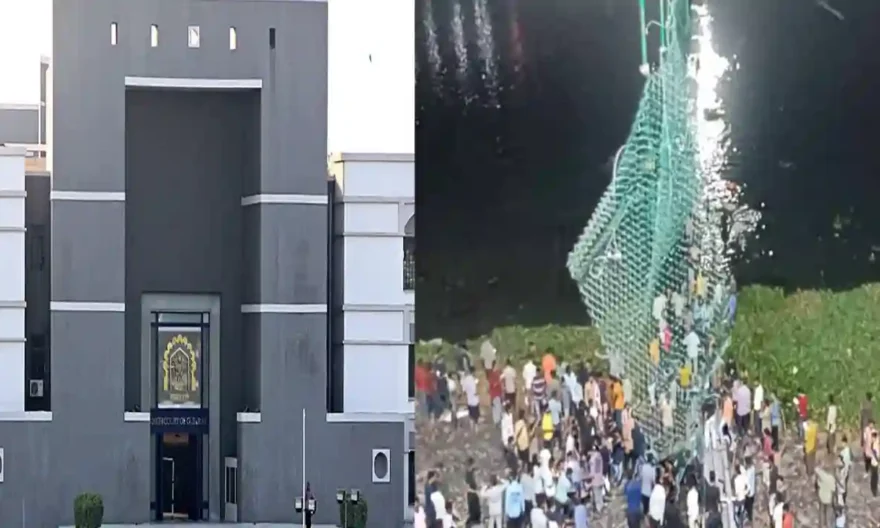
The Gujarat High Court on Wednesday ordered the private contractor Ajanta Oreva, whose directors are accused in the Morbi bridge collapse case, to increase the monetary help payable to the victims of the tragic incident.
The case involves the collapse of Jultu Pul, a 141-year-old suspension bridge in Morbi, Gujarat. After being reopened following repairs and maintenance by the Oreva Group, the bridge collapsed on October 30, last year, killing hundreds. In November, the Gujarat High Court took suo motu cognizance of the case.
The contractor initially offered to pay ₹3.5 lakh to those who died in the incident and ₹50,000 to those who sustained injuries.
Senior Advocate Nirupam Nanavti, appearing for the contractor, submitted this morning that the company has decided to increase the amounts to ₹5 lakh and ₹1 lakh to be paid to the deceased and the injured respectively.
However, the division bench of Chief Justice Sonia Gokani and Justice Sandeep Bhatt found the amounts to be less than what the Supreme Court had laid out in its decision in Sanjay Gupta vs State of UP.
In the Sanjay Gupta case, the Supreme Court issued guidelines on financial help payment, requiring private entities to pay 55% of the compensation to victims if they are responsible for any incident.
In light of this, the High Court ordered Ajanta to pay ten lakh rupees to the kin of the deceased and two lakh rupees to those injured.
The Court stated, “The state has paid 8 lakhs, and the central government has paid 2 lakhs through the PM Relief Fund for the victims. We have noted that the Contractor has offered to pay some financial help, but we believe that this amount does not correspond to the apportionment of 55% ordered by the Supreme Court. As a result, we direct the company to increase the financial help amount for the deceased to 10 lakh and the financial help amount for those injured in the incident to 2 lakh.”
The bench noted in its order on Wednesday that the company had already offered to take full care of seven orphaned children because of the incident, from their residence to their education and jobs.
The Court also requested that the State consider establishing a dedicated authority to properly verify and certify whether a bridge is fit for use after State engineers complete repair work, as this would bring in more accountability. The state was given 15 days to implement such a policy.
Meanwhile, Senior Advocate Manisha Lavkumar, who represented the government, submitted a copy of the charge-sheet filed in the lower court against the accused. She assured the bench that the financial help would be distributed correctly without the use of filters. The case would be heard again in two weeks.




